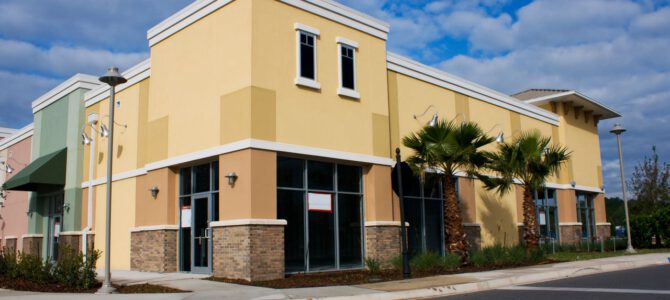Security Guard Jobs Baltimore are essential to protecting buildings, properties and events. While most companies provide on-the-job training, earning a Criminal Justice and Security Services diploma from Bryant & Stratton College can help make job seekers more employable.
Alertness, honesty and observantness are key traits for a security guard. Remind your team to always report equipment issues, such as faulty alarms or batteries.

Security officers work in a number of different settings, including construction sites, public and private buildings, retail stores, hotels, and event venues. Their duties include securing the premises and managing incidents and emergencies. They are responsible for observing any unusual activity, monitoring security cameras, and conducting security screenings of people entering the facility.
Security guards are often first on the scene of an accident or emergency and must be able to quickly and effectively assess the situation, take appropriate action, and communicate with authorities. Security guards also need to be able to perform CPR (Cardiopulmonary Resuscitation) and first aid, so it is important that they receive appropriate training.
In addition to their patrolling duties, security officers may also be responsible for access control at building entrances and vehicle gates. This means that they must ensure that employees and visitors display proper passes or identification before being allowed to enter the premises. They are also typically the first to respond to minor incidents, such as broken lights or doors, disturbances, lost persons, or minor accidents. Security officers are also required to monitor and record all relevant data, so they can report their findings to management or the appropriate authorities when necessary.
Another key role of a security guard is to act as a deterrent and prevent crime from occurring. Security guards use their observation skills to look for suspicious activity, and they are often trained in the latest detection technologies to be able to identify potential threats as early as possible. In addition, they are expected to be able to interact with people in an appropriate and professional manner.
Security guards need to have a high level of physical fitness, which is important for their ability to chase or apprehend suspects and to react quickly in emergency situations. They are also often required to carry out searches of vehicles and other locations, so it is vital that they have good physical strength and endurance.
Having excellent communication skills is crucial for security guards, especially when dealing with upset or agitated individuals. They must be able to understand and interpret body language and provide clear instructions to other security guards or emergency services as needed. This can be improved with the help of continuous training, such as through SC Training’s (formerly EdApp) library of courses on effective communication skills.
Security Supervisor
Security supervisors oversee security guards who protect people and property at commercial and residential buildings, schools, hospitals, and other facilities. They have a higher level of responsibility than security officers and must be familiar with security procedures and policies. They also need to have good organizational skills to make schedules and prepare training materials for their staff. Security supervisors also verify the functionality of security equipment like CCTV and burglar alarms.
Some of the main duties of a security supervisor include analyzing and evaluating security personnel performance, initiating disciplinary action if necessary, writing reports on accidents or other incidents and assisting local law enforcement officials in investigations. They must also be able to respond quickly to any requests for assistance from customers, residents, or employees. In addition to these tasks, a security supervisor may also be asked to escort people or transport cash to safety deposit boxes.
A security supervisor must be able to use the skills learned during their professional training to help employees deal with any problems they encounter. They must also have a strong understanding of how to defuse conflicts and handle customer service situations. They must be able to communicate effectively with all types of people, as they will need to explain complex topics in simple terms. Security supervisors must be aware of the latest threats and how to respond quickly in a crisis situation.
Security supervisors must be comfortable working in an indoor or outdoor setting at night and during inclement weather. They need to be able to patrol their assigned areas at all times and should be physically fit, as they will often need to climb, walk, stoop, kneel, and crouch in order to monitor the area. They will also need to be able to stand for long periods of time.
Security Manager
A security manager is responsible for a variety of tasks such as supervising, training, and scheduling security guards and other security professionals. They work in corporate or retail settings to ensure the safety of customers and employees, protect assets, and deter theft and vandalism. They also manage the security department and may conduct security audits, provide security assessments, write policies, and review incident reports. Security managers may be company employees or contract with a security management firm.
Security managers must be able to communicate the overall security goals and mission for their facility to their employees, customers, and the public. They must also be able to work independently and be flexible to adapt to a variety of situations. They must be detail-oriented and be able to spot potential security issues before they become a problem.
They monitor access control systems to make sure only authorized persons enter the premises, inspect incoming packages before allowing them onto the property and ensure that employees follow proper procedure when entering a restricted area of the facility. They also patrol the premises to look for signs of crime, such as loitering or suspicious behavior, and they must be able to identify people in order to prevent false alarms from being set off.
In addition, they are responsible for ensuring that the facility’s information technology (IT) systems are protected from viruses and other rogue programs. They must create and monitor procedures to keep them from infiltrating the system, such as requiring all diskettes that are used on a company computer to be scanned before being placed on any network or machine.
Security managers must have extensive experience with the military security processes. They have to undergo a three-tier process that includes a rank requirement, favorable clearance and local indoctrination before being appointed by their commander. During the process, they receive security manager-specific training on JPAS, Electronic Questionnaire for Investigation Processing, forms, terminology and security manager duties and responsibilities. After they receive their initial training, they are required to attend refresher training on a variety of subjects and topics in order to broaden their scope and improve efficiency.
Security Director
Almost all types of businesses and organizations have security teams to ensure the safety of employees and assets. These professionals are responsible for planning and directing the implementation of security systems to protect facilities, equipment, data, and personnel from theft, industrial espionage, terrorism, and physical assault. They must also be able to create disaster and crisis preparedness plans. They are also responsible for hiring and training new security guards and managers, and for creating security policies and procedures.
Developing a career as a security director takes years of experience in management roles. You can begin this journey by working as a security manager or a supervisor for an organization. As you gain more experience, you can apply for director-level positions, either at the same company or with different companies. Many security director jobs require a minimum of a bachelor’s degree, so make sure to research educational requirements and options before applying.
Directors of security work in a variety of industries, but most often for government agencies, banks, or manufacturing companies. They spend most of their time in the office, though they may need to travel between locations to assess security issues. Directors of security typically work regular business hours, but they must be available to respond to emergencies at any time.
A security director’s responsibilities include assessing and managing risks to the business, determining how to protect the organization from threats, and providing feedback to management on progress and challenges. They also develop security awareness programs and conduct security training for employees to ensure that everyone understands their role in ensuring the safety of the company’s assets, information, and staff.
Security directors also develop and implement policies to prevent information security breaches and cyber attacks. They perform risk assessments, identify and mitigate threats, and collaborate with IT teams to ensure that all vulnerabilities are addressed. They must be able to communicate with people at all levels of the company, including executives and board members. Security directors also need to be able to lead and motivate teams. They need to be able to analyze large amounts of data and information, and make decisions quickly.



